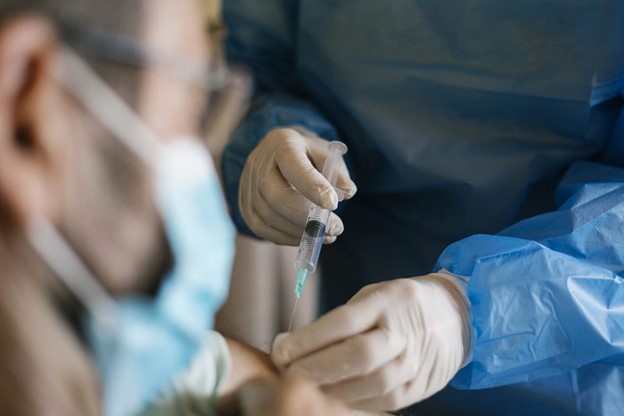Fast Facts
- The World Health Organization (WHO) on Saturday declared monkeypox a public health emergency of international concern (PHEIC).
- Naming the virus, a public health emergency is meant to mobilize efforts to further stop the spread of the virus.
- To date, there are more than 16,000 confirmed cases of monkeypox across 74 countries.
Monkeypox is now a public health emergency, the World Health Organization (WHO) announced on Saturday. The designation will allow the agency to take further measures to help curb the spread of the virus.
The decision comes following a June 23 meeting, during which the WHO decided against naming monkeypox a public health emergency of international concern, or PHEIC.
For Saturday’s declaration, WHO Director-General Tedros Adhanom Ghebreyesus, PhD acted as a “tie breaker” after members of the International Health Regulations Emergency Committee failed to come to a consensus once again.
“We have an outbreak that has spread around the world rapidly, through new modes of transmission, about which we understand too little, and which meets the criteria in the International Health Regulations,” Dr. Ghebreyesus said in a statement. “For all of these reasons, I have decided that the global monkeypox outbreak represents a public health emergency of international concern.”
Monkeypox is a virus that’s related to smallpox, but it’s much milder. It has been endemic in Western and Central Africa for nearly 50 years, but the scale of this outbreak is unprecedented. Right now, Dr. Ghebreyesus added, the virus seems to be largely spreading between men who have sex with men, and the majority of new cases are in Europe.
Worldwide, there have been more than 16,000 confirmed cases of monkeypox in 74 countries, according to data from the Centers for Disease Control and Prevention (CDC). In the U.S. alone, there are 2,891 confirmed cases.
Here’s what to know about monkeypox’s new status as a public health emergency, and what it means for the trajectory of the outbreak.
Who Can—And Should—Get the Monkeypox Vaccine?
Declaring Monkeypox a Public Health Emergency
Monkeypox is not a particularly deadly disease—it’s rarely fatal, and is self-limiting, which means it can clear up on its own in a matter of weeks. But there are certain advantages for giving the virus a public health emergency distinction, explained David Weber, MD, MPH, distinguished professor of medicine, pediatrics, and epidemiology at the University of North Carolina Chapel Hill.
“[Naming a virus, a PHEIC] does help mobilize support among all the member nations of the UN for increasing planning, making resources available for combating the illness, building up supplies of drugs and vaccines, and making the public more aware of the nature of the problem,” Dr. Weber told Health.
As part of declaring monkeypox a public health emergency, the WHO has made recommendations for countries based on presence of monkeypox cases, modes of transmission, and manufacturing abilities.
In countries experiencing human-to-human transmission of monkeypox, the goal, according to the WHO, is to:
- Stop transmission and protect vulnerable groups
- Intensify surveillance and public health measures
- Strengthen clinical management and infection prevention and control in healthcare settings
- Accelerate research of vaccines, treatments, and other tools
- Establish travel recommendations to avoid further spread
There are, however, concerns that designating monkeypox a global health emergency could further stigmatize gay and bisexual men, the community that has been most affected by the recent outbreak. Another stipulation of the declaration is to ensure that does not happen.
“It is exceptionally important that the existence of a public health emergency of international concern and the intensification of surveillance and control efforts are not used as a means of coercive surveillance or for imposition of measures that would impede the dignity and human rights of the people affected,” Mike Ryan, MD, MPH, executive director of the WHO Health Emergencies Program, said during a media briefing.
Can Masks Help Prevent Monkeypox? What We Know So Far
A Version of Monkeypox that’s not well understood
Aside from the growing number of monkeypox cases worldwide, there are a number of other factors for this specific monkeypox outbreak that went into the WHO’s decision to name it a public health emergency.
The virus’s rapid spread—especially to countries that have not typically seen it before—was one deciding factor, Dr. Ghebreyesus said his statement. CDC data shows that the majority of cases are in countries that have not historically reported monkeypox.
The specific monkeypox virus being seen in this outbreak also looks different from the virus that was previously known to cause disease. This strain of monkeypox, though related to the endemic West African monkeypox virus, has a number of mutations, Dr. Weber said. This means that it’s unpredictable, compared to what’s typically known about the virus.
Though it’s unclear how those mutations are affecting the virus, there are a few things that have become apparent in the current outbreak. “This is by far the largest outbreak we’ve ever seen, and there clearly is sustained human-to-human transmission,” Dr. Weber said. “Now, whether it’s actually more infectious or it’s just spreading in the same mechanisms still needs to be further worked out, but it’s clearly different than earlier outbreaks.”
Along with increased human-to-human transmission, the symptoms of this monkeypox virus also look slightly different. Monkeypox was previously known to present as fever, chills, swollen lymph nodes, and large amounts of monkeypox lesions on the body, according to Dr. Weber.
But “what we’re seeing with this outbreak is many people don’t have fevers at all,” Dr. Weber said. “Many don’t have chills or other body symptoms before they develop the rash; [and] the rash, instead of having many lesions, can have only a few lesions on the body or a even a single lesion.”



